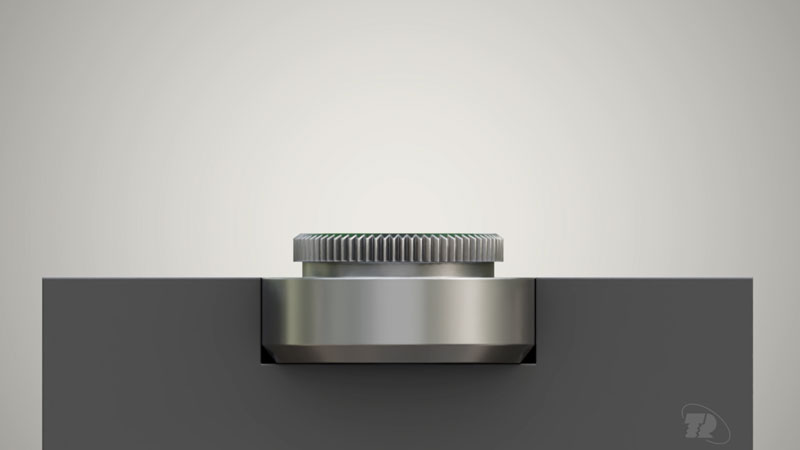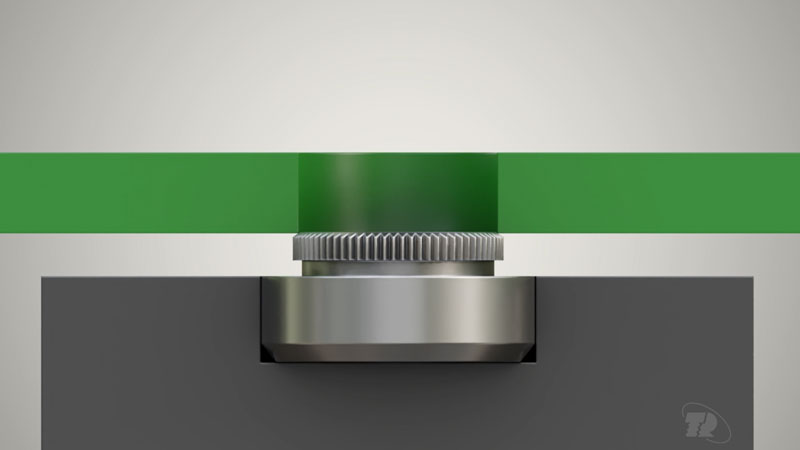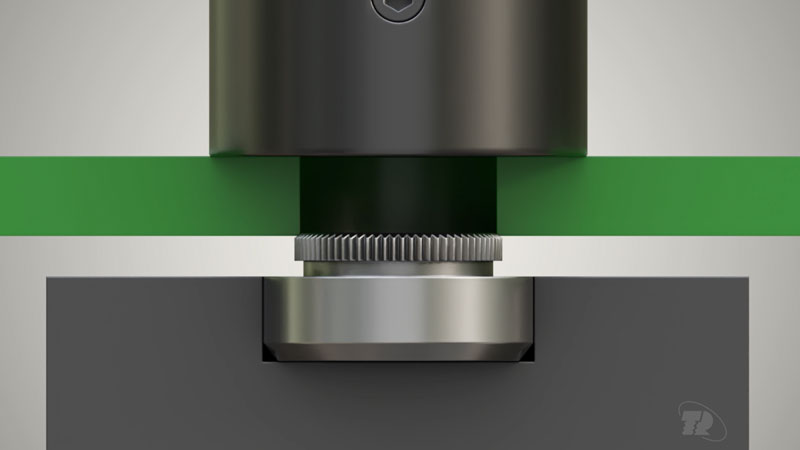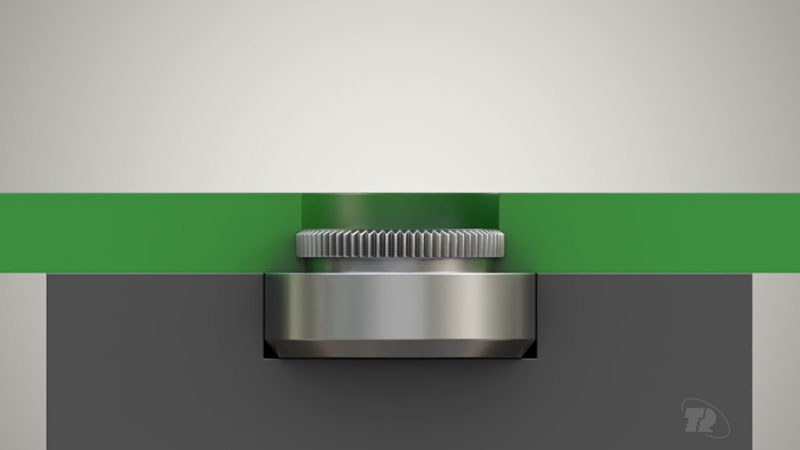TR Self Clinch Broaching Nut installation

Select the appropriate hole size from the table below for the nut size required. Punch the hole diameter into the sheet material.

Place the nuts spigot end into the hole on the side opposite the mating face. So that nut rests on the serrations. Ensure both plate and nut are aligned along the same axis. If the nut is not seated ‘square’ in the hole, the joint will be imperfect and mating threads will misalign.

Using a profiled punch, apply only sufficient pressure to ‘squeeze’ the nut serrations into the parent sheet metal.

The serrations if properly installed will provide torsional (rotational) resistance. After installation the spigot joint should be flush with the sheet metal.
Can be installed sheet on nut or nut on sheet, for ease of application.
Installation animation
Using the table below with reference to the specific size of the Broaching Nut, select the correct hole size for the installation of the fastener.
For the best dimensional accuracy and therefore performance, TR recommends that all holes in the sheet metal application be punched.
Note it is essential that the recommended hole tolerances be observed.
Hole sizes - metric (mm)
| Thread and pitch | M2.5 0.45 | M3 0.5 | M4 0.7 | M5 0.8 |
|---|---|---|---|---|
| Minimum rec sheet thickness | 1.53 | 1.53 | 1.53 | 1.53 |
| Hole size +0.08 -0.00 | 4.22 | 4.22 | 6.40 | 6.90 |
| Minimum distance to edge of sheet | 4.4 | 4.4 | 6.4 | 7.1 |